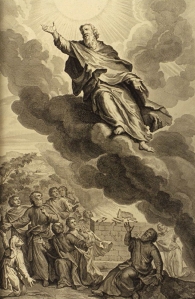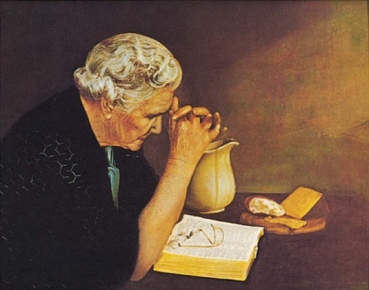 I have embraced the Reformed thinking over the past three years and have come to know God in a way I did not know Him before. When I read my bible, I was moved to tears of joy as I grasped the love, long suffering and grace of the Sovereign of the universe. However, I have noticed a tendency of many Reformed teachers to emphasize correct exegesis of scripture, correct theology, correct soteriology, but lack power in their messages. Now do not take me wrong, all the above is very necessary but we can be like the Church of Ephesus and leave our first love.
I have embraced the Reformed thinking over the past three years and have come to know God in a way I did not know Him before. When I read my bible, I was moved to tears of joy as I grasped the love, long suffering and grace of the Sovereign of the universe. However, I have noticed a tendency of many Reformed teachers to emphasize correct exegesis of scripture, correct theology, correct soteriology, but lack power in their messages. Now do not take me wrong, all the above is very necessary but we can be like the Church of Ephesus and leave our first love.
When I first was enlightened to Reformed doctrines, I could not listen to enough of John Piper, then I discovered Joel Beeke and Sinclair Ferguson and found my heart being drawn out in more praise to our great Sovereign God. These men are not perfect but they have a deep knowledge of who God is and their preaching radiates the power of the Holy Spirit. Last year, I became acquainted with the Puritans through reading, “A Puritan Theology” by Joel Beeke and Mark Jones. I did not agree with all the Puritans theological or doctrinal conclusions, but I was very impressed with their passion to know God and commune with Him. As Paul Washer said, “those of us who love the Puritans need to become men and women of God as they were.”
One question I have been asking myself, “what is a man of God?” Just this morning I listened to a sermon by Paul Washer, “True Disciple Conf. 3 of 8” I then read a sermon by John Angell James. Mr James in his sermon discussed “Enoch Walked with God” These two articles expressed very well what is needed to make a true man of God who walks in the power of the Holy Spirit. I would like to share some of these thoughts.
Firstly, Paul Washer, stated “People need a man of God. That is not just reading good books and reading the bible ( that is necessary) but being alone with God, to speak to Him, meditate on Him, commune with Him.” ” The Christian life is not just the right things we do to be a right kind of people, it is a passion to commune and be with God. It is to know Him in real intimacy”. Mr. Washer gave a quote from Martin Luther,
” I have so much work to do today that I must pray three hours or I will never get it done”
The following is an article written by John Angel James mentioned above:
“Enoch walked with God.” Nothing can be more beautiful, comprehensive, or expressive than these few words. They contain a figure of speech—and what a figure! The allusion is to two people voluntarily and pleasantly walking together, and conversing confidentially with each other. They are friends, for “how can two walk together except they are agreed.” They are conscious of each other’s presence, as two people in such a situation necessarily must be. They are engaged in actual fellowship; there is communion and interchange of thought by speech. They are going the same way and engaged upon the same subject. Thus did Enoch walk with God. He was, like Abraham afterwards, the friend of God, having, as a sinner, come into a state of reconciliation with God by repentance and faith in the promised “Seed of the woman.” He loved God as the effect of God’s love to him, they were friends, and the patriarch knew and rejoiced in it. He lived as in the presence of God—he endured as seeing Him that is invisible, he acted “as ever in the great Taskmaster’s eye,” and was checked in temptation, stimulated in duty, and comforted in affliction, with Hagar’s appeal, “O God, You see me.” His private, domestic, and social life was ever regulated by the assured belief that he was always and everywhere in the presence and under the notice, even to the state of his heart, of an observant God. He maintained habitual communion with God, not only by those public acts of worship and sacrificial rites, which doubtless, he celebrated before the eyes of the scoffing generation amidst which he lived, not only at the domestic altar around which he gathered his household, nor even in the usual acts of his own private and personal devotion—but also in the constant frame and tenor of his devout and holy mind. His soul was in habitual communion with God, by its thoughts, its aspirations, and its unutterable breathings of confidence, affection, and intense desires. He exercised a divine friendship, a confidential, yet reverential familiarity, and talked with God as a man talks with his friend.
Enoch Walked with God
2
